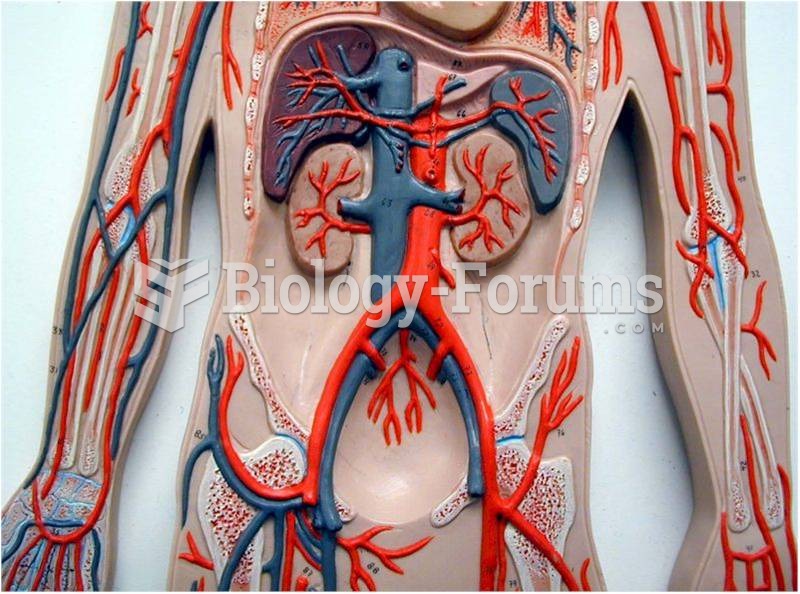|
|
|
The immune system needs 9.5 hours of sleep in total darkness to recharge completely.
About 60% of newborn infants in the United States are jaundiced; that is, they look yellow. Kernicterus is a form of brain damage caused by excessive jaundice. When babies begin to be affected by excessive jaundice and begin to have brain damage, they become excessively lethargic.
For high blood pressure (hypertension), a new class of drug, called a vasopeptidase blocker (inhibitor), has been developed. It decreases blood pressure by simultaneously dilating the peripheral arteries and increasing the body's loss of salt.
On average, the stomach produces 2 L of hydrochloric acid per day.
Illicit drug use costs the United States approximately $181 billion every year.







